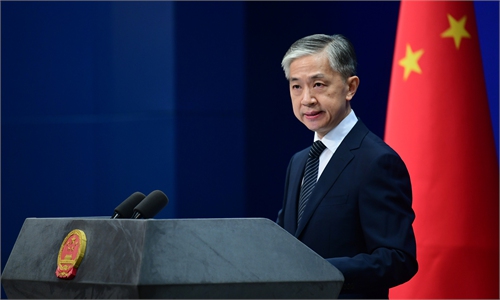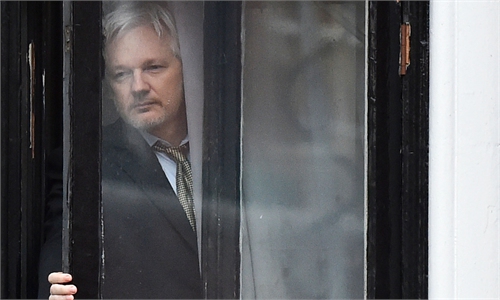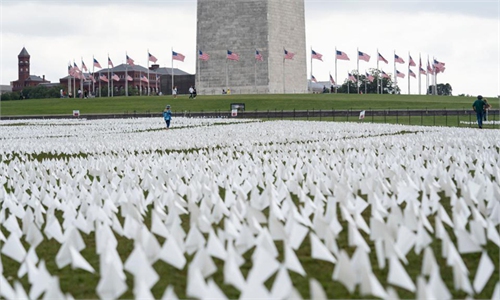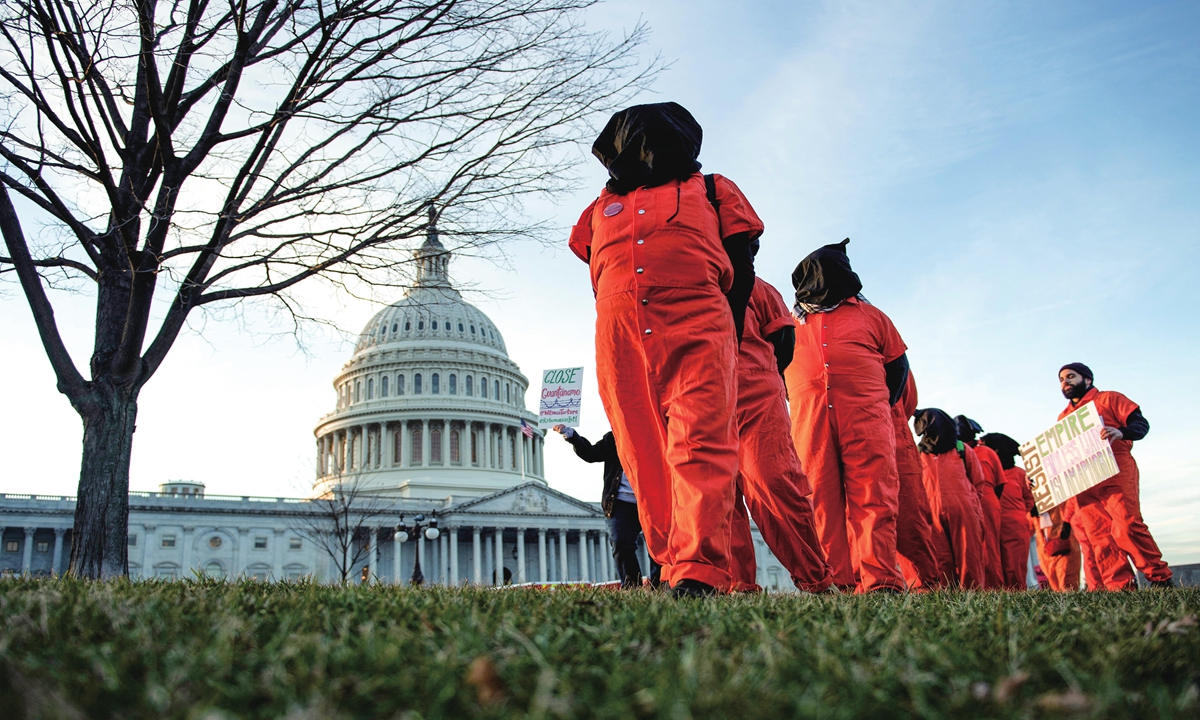
Demonstrators dressed in Guantanamo Bay prisoner uniforms march past Capitol Hill in Washington, DC, on January 9, 2020, during a rally on "No War with Iran." Brendan Smialowski / AFP
Editor's Note:
January 11 marked 20 years since the opening of the Guantanamo Bay detention camp, the infamous US prison located at a US Navy base in southern Cuba that represents injustice and abuse. "How did I harm America that America has to do this to me? And of course, there was never an answer," Moazzam Begg (Begg), a British Pakistani who was once held in extrajudicial detention by the US government in the Guantanamo Bay detainment camp, told Global Times (GT) reporter Wang Wenwen in a recent interview. What was his experience there? Will the prison ever be closed? Begg shared his thoughts with GT.
GT: How was life in Guantanamo prison? What was the most severe form of torture you heard or experienced?
Begg: I was held by the US for three years in total, one year in Bagram [in Afghanistan] and two years in Guantanamo. Some of the worst torture that I experienced was actually witnessing the death of two prisoners. One prisoner, his hands were tied above his head to the top of the cage. He was suspended like this and beaten repeatedly until he was killed. The other thing I witnessed, I was subjected to the sounds of a woman screaming in the next cell that I was led to believe was my wife being tortured. While I was tied up and interrogated by the CIA and the FBI, they waved pictures of my children in front of my face and threatened to send me to other countries to be tortured.
I know many people have been held for 15, 16 years without charge or trial. Some of them have been subjected to the notorious medieval torture technique called waterboarding, where a person is made to feel like they are drowning, even though they are tied to a bunker or to a bed. And water is poured over them. There are numerous torture techniques that have been employed by the US, by the CIA, by the US military. As I said, probably the worst form of torture is to hold somebody without charge or trial, without even telling them what crime they've committed. You're paying the ultimate price of your freedom.
GT: Many detainees are mostly Muslims. Were religious practices like the five daily prayers and Ramadan allowed? Were there any circumstances when religious beliefs were violated?
Begg: Religious beliefs were violated especially in the early days. There is no doubt about this taking place. We were separated from one another. We couldn't pray in congregation in the first years. We didn't know when Ramadan came. We didn't know the prayer times. We saw the Quran itself ripped into pieces by American soldiers and thrown into the toilet. There was all sorts of abuse and desecration of the Quran that took place that forced us to respond, to protest.
All of these things happened in the early days. And there's no doubt about that. The Muslim identity of the prisoners has been targeted.
GT: What changes did detention bring to your physical and mental health? Were you able to communicate with your family? What was their experience?
Begg: I think the physical part of it was probably less so than the mental part. The physical part, in the early days, they stripped us naked, they beat us, they shaved our hair, they shaved our beards, they took pictures of us in very compromising and very degrading ways. This kind of situation lasted for at least a year until I went to Guantanamo. I was there for two years in total solitary confinement with no access to other human beings. To my mental state, on some occasions, I lost control and repeatedly asked my American captors, what did I do to you? How did I hurt you? How did I harm America that America has to do this to me? And of course, there was never an answer.
It was very difficult to communicate with my family. So you are not allowed any phone calls. You're not allowed any visits. You're not allowed any meaningful communication with your family, even letters that came back and forth between me and my family were heavily redacted, so there were letters from my six-year-old daughter that were completely blacked out by the Americans. I could often only read in the beginning and the end, "I love you, dad." And in the middle, I couldn't read what she'd written, because they thought this was all contradictory to security measures. A letter I wrote sometimes would get to my family a year later. The response would come six months or eight months later, which was really shocking.
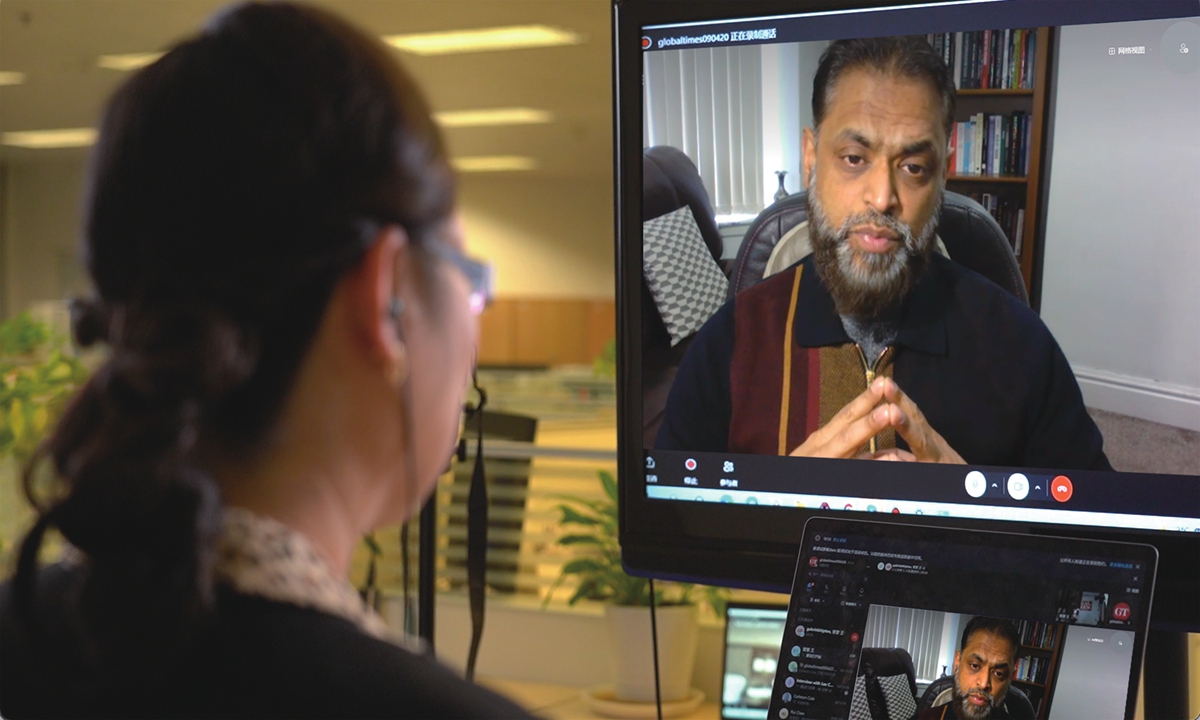
GT reporter Wang Wenwen is interviewing Moazzam Begg, a British Pakistani who was once held in extrajudicial detention by the US government in the Guantanamo Bay detainment camp.
GT: Have you received compensation from the US government? Do you think the US government will ever make an apology?
Begg: It's important we remember that 779 prisoners were held by the United States at Guantanamo. There are still 39 there. None of the prisoners has ever been apologized to or compensated. Despite the fact that the American government has, under Obama, issued a Senate report in which they recognized that hundreds of people were tortured, there's been no accountability, no prosecutions, no compensation, and no apology. The United States has essentially been able to get away with what everybody else would deem crimes against humanity and war crimes.
GT: Military action by the US in Iraq and Afghanistan is over. Why is the Guantanamo Bay detention camp still open? Do you think it will ever be closed?
Begg: It's the question we keep putting to the United States. One answer, torture. The United States tortured so many people and tried to use that evidence from torture to prosecute some of them. Only a handful of those 39, about 10 of them, have been charged. And they can't use torture evidence in the US courts. To prosecute these men, they will be freed. And these men include those accused of being involved and orchestrating the 9/11 attacks.
So if this Guantanamo isn't kept open, these people would either have to be released or taken to the US where they will be shown that they were tortured. And then they will have to be released because you can't use torture evidence in a US court. So, unfortunately, the United States has dug itself into a ditch from which it cannot extract itself. And that ditch is named torture.
GT: Is a Republican- or Democrat-led US government more likely to push for the closure of Guantanamo Bay? Why?
Begg: It's hoped that Joe Biden would follow through on what his previous leader, Obama, promised to do - to close Guantanamo. He was vice president at the time. We'd hoped that he would follow through. But the truth of the matter is this Guantanamo has been a bipartisan project of the United States of America.
So it's been both Republican and Democrat. It's been east coast and west coast and it has been black and white. And unfortunately, none of the presidents of the United States of America has been able to do what every president, including George Bush, has said.
That is, "I would like to close Guantanamo." Well, the truth is that the US president is the commander in chief of all US forces, of all US military. Guantanamo is a military base. He can easily pass an executive order to have the place closed as the commander in chief of the forces. And the fact that it hasn't happened shows that there's still a political cowardice that has stopped this from happening.
